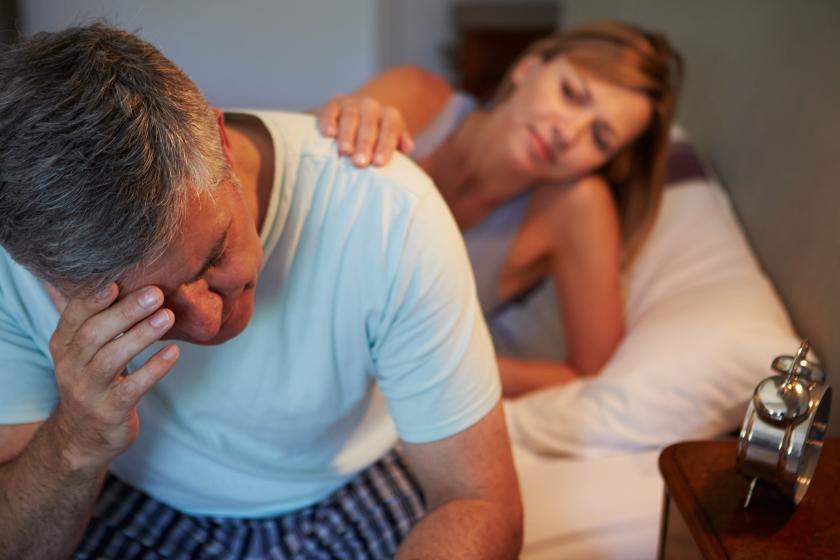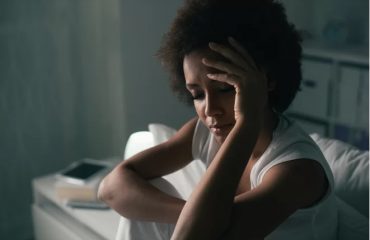Difficulty falling asleep or staying asleep affects approximately 40% of adults and is a serious health concern. Frequently sleep disorders are ignored or overlooked; however, they can have a significant impact on quality of life, morbidity, mortality.
Do you have a sleep problem?
- Do you have difficulty falling asleep at night?
- Do you wake up in the middle of the night and have difficulty getting back to sleep?
- Do you require caffeine to stay awake and alert?
- Do you feel irritable or have difficulty controlling your emotions?
- Are you sleepy during the day?
- Are you slow to react or feel like your mind is foggy?
- Do you have a difficult time concentrating?
- Do you have difficulty staying awake when watching television or reading?
- Do you fall asleep or feel tired while driving?
If you answered yes to any of the questions above, you may not be getting enough sleep and you are not alone. According to the American Academy of Sleep Medicine (AASM), 1 in 3 Americans is not getting enough sleep which can result in a low sex drive, illness due to a weak immune system, weight gain, heart disease, cancer, cognitive issues, aging, and diabetes. Problems with sleeping can be caused by an imbalance of hormones. If you are losing sleep due to a hormone imbalance, the professionals at the Anti-Aging and Wellness Clinic may be able to help you experience a peaceful night’s sleep.
7 Common Causes of Sleep Disruptions
- Adrenal fatigue
- Too much cortisol
- Diet
- Low blood sugar
- Stress
- Perimenopause and menopause
- Aging
Aging, adrenal fatigue, stress, a poor diet and menopause can affect your hormone production and sleep patterns. We each have an internal biological clock, called the circadian rhythm, that regulates our sleep/wake cycle. A hormone imbalance can disrupt the circadian rhythm causing a disruption in your sleep pattern and will result with you to feel fatigued and sleepy. Cortisol levels go up and down throughout the day. It is usually at its highest levels around 8:00 in the morning and lowest between midnight and 4:00 in the morning. Too much or too little cortisol can cause disruptions to your sleep. Stress, adrenal fatigue, menopause and low blood sugar can alter your production of cortisol. Each time your sleep/wake cycle is disrupted, it can take several days for the body to correctly adjust your levels of cortisol.
During peri-menopause and menopause women produce less progesterone, a sleep promoting hormone. Low levels of progesterone can make it difficult for women to experience a restful night of sleep. In addition, women may also experience hot flashes at night which is a surge of adrenaline, waking you up and producing a change in temperature that can make it difficult to get back to sleep.
Research has shown that on average people need 7-8 eight hours of sleep per day. At the Anti-Aging and Wellness Clinic we will evaluate your hormone levels and if necessary help you regain optimal levels. A comprehensive blood test will identify any issues with cortisol production, adrenal fatigue, and menopause. The physicians at the Anti-Aging and Wellness Clinic use medically supervised bio-identical hormone replacement therapy to treat hormone imbalance. By optimizing your hormone levels your sleep will improve and you will feel more energized.
Balanced levels of hormones can result in reduced signs and symptoms of aging, improved mood, improved insulin levels, reduced body fat, increased muscle mass, increased energy, improved cognitive function and increased libido.
We cannot live without sleep. A restful sleep keeps the immune system functioning, helps the brain store what it has learned, assists with digestion and the metabolism of fat, and helps cells regenerate. If you have been having difficulty sleeping for more than two weeks, contact the Anti-Aging and Wellness Clinic to learn how we can help.






